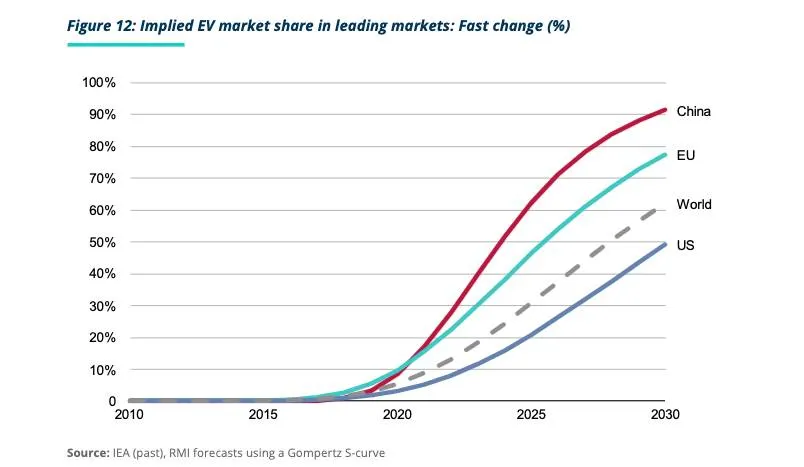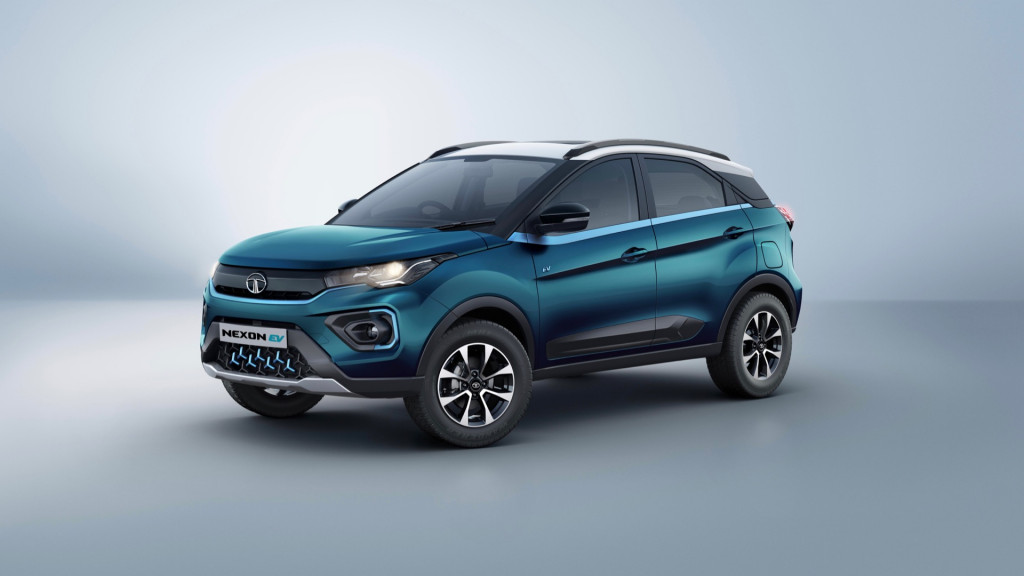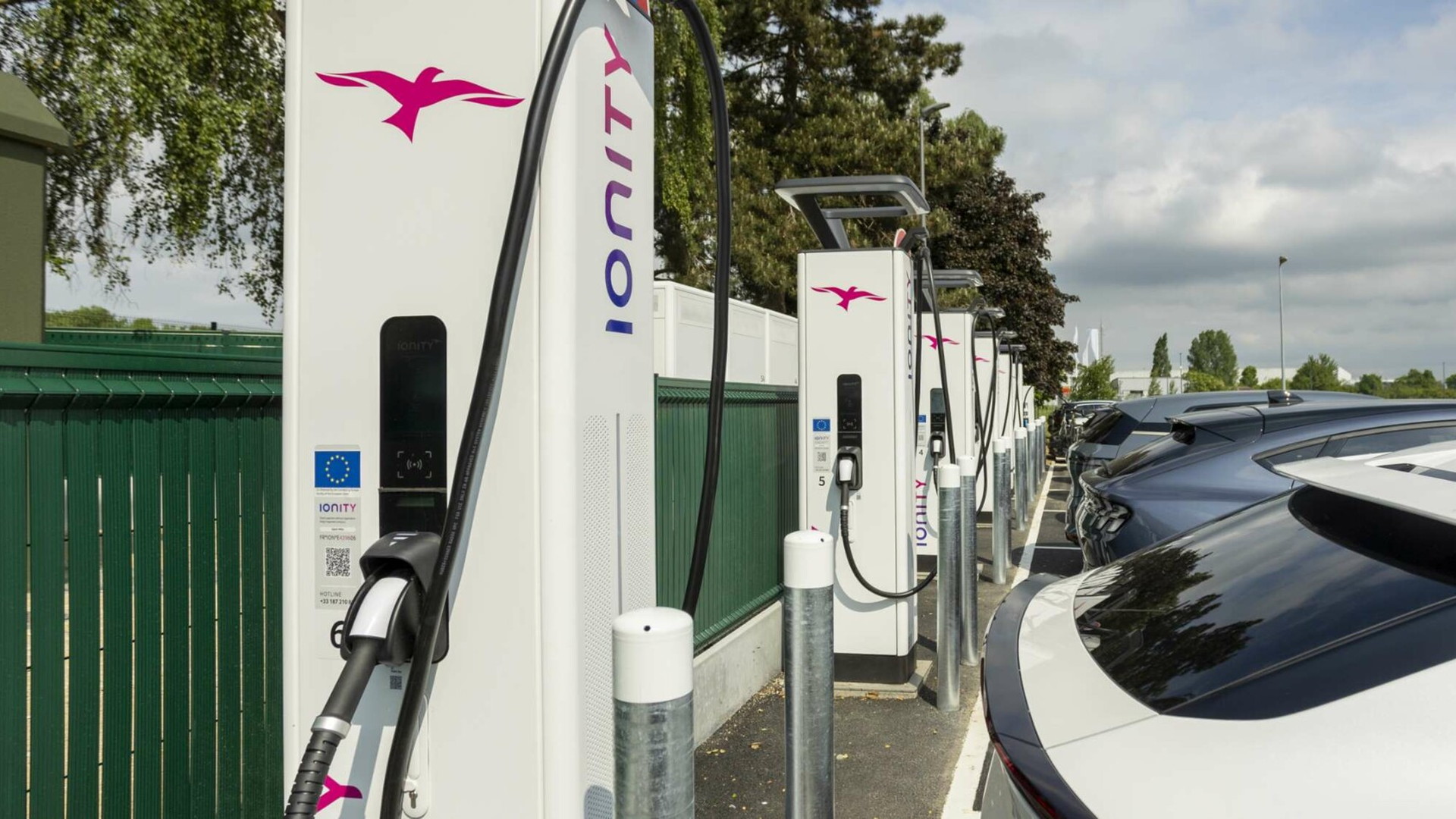EV sales will accelerate rapidly over the next few years, topping two-thirds of global car sales by 2030, the Rocky Mountain Institute (RMI) predicts.
In research presented ahead of Climate Week NYC, analysts predict that EV sales will increase at least sixfold by 2030 to a market share of 62% to 86% of new car sales. In China, the world's largest new car market, RMI predicts that EVs could make up 90% of new vehicle sales by the end of the decade.
RMI highlights several factors supporting explosive EV sales growth, including acceleration of EV sales in "late-adopting" countries with robust new car sales, such as India and Israel.

Predicted global EV market share growth (via Rocky Mountain Institute)
Another potential factor is a decline in sales of internal-combustion cars. Analysts determined that sales of new internal-combustion cars peaked in 2017, and predict that these cars will be scrapped more rapidly in the coming years.
As with many past analyses of EV sales growth, though, this one largely hinges on predictions of lower battery prices bringing the cost of EVs down, to the point where they cost the same—or less—than internal-combustion cars.
RMI expects battery costs to halve this decade, from $151 per kwh to between $60 and $90 per kwh by 2030. As prices decrease, the purchase price of a new EV will fall below that of an equivalent gasoline or diesel car as early as 2024 in Europe, and 2025 in China. The analysis suggests U.S.-market EVs will achieve price parity in 2026 for large vehicles and 2029 for small ones.

Tata Nexon EV
The analysis assumes that battery cost will resume falling starting this year, after spikes caused by pandemic-adjacent supply-chain issues. It also doesn't make mention of super-size batteries that U.S. EV adoption may hinge around, and how they may affect the supply chain.
The accelerated EV adoption suggested by this analysis will likely work against the oil industry. RMI previously forecast production effectively dropping to near zero after the 2040s. But as the RMI and others have pointed out in the recent past, the shift to EVs alone won't solve climate goals. People also need to drive less.












